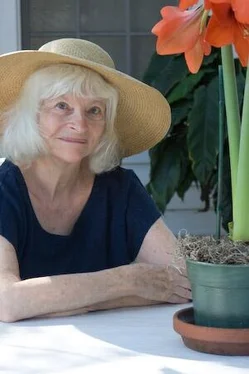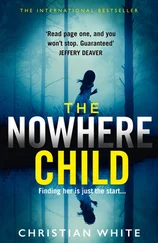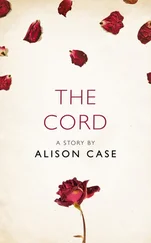The Nowhere City
A Novel
Alison Lurie

PART ONE
Mar Vista
WHY WORK
At a Low Pay No Future Job
BILLIONS will be spent on TECHNICAL WRITING this year. Trained TECHNICAL WRITERS are desperately needed now ... Short course, budget terms ... For full information, mail coupon NOW.
ALONE TONIGHT? Amy’s Introductory Service, all types.
—Advertisements in the Los Angeles Mirror News
To simulate the physical conditions of the first Thanksgiving, Miss Ling’s B5 class went to the beach at Playa Del Rey recently. There, as the pilgrims of Plymouth Colony did, the children prepared the cornbread, succotash, and baked potatoes for their Thanksgiving feast, embellished with turkey prepared in the classroom.
—Monthly bulletin of the U.C.L.A. Elementary School
1
“IT’S SO DARK IN HERE,” Paul Cattleman said. “Don’t you want me to open the window?”
“No, thanks,” said his wife. She turned and lay face down under the sheet, her head ground into the pillow. Katherine Cattleman had got off the Boston–Los Angeles plane three hours ago with a violent sinus attack which had been growing worse ever since.
Paul pulled one side of the Venetian blind away from the bedroom window and stepped behind it. It was hot and bright outside. Eight-foot stalks of enormous bright green leaves ending in clusters of red and gold trumpet-shaped flowers (Heliconia) lined the small square of back yard.
“You ought to come and look at these fantastic lilies, or whatever they are, Katherine,” Paul said. “They must be six inches across. And it’s October!”
Katherine did not answer. He let the blind fall back against the window, noticing that each slat was coated with dust—possibly dust that had collected since he had moved in, possibly dust that the previous tenant had left for him. Whichever it was, Katherine would not like it.
With her face still buried in the pillow, she shifted restlessly, pushing the covers aside. Her loose nightgown had slipped up, and Paul observed a pleasing arrangement of pale round pinkish shapes, the important places marked with curly brown hair. Desire rose rapidly in him; he had been separated from his wife for six weeks. But if he were to propose to make love to her now she would feel hurt and misused; she would think him selfish, greedy, and inconsiderate. She would acquiesce, but she would not respond.
“How do you feel now?” he asked.
“Terrible.” Katherine smiled wanly. “This is the worst attack I’ve had for months. I’m not having any of those shooting pains, but there’s this horrible, horrible ache. It’s as if an iron band were screwed around my head. No. It’s more as if my whole head had been pressed into some kind of tight metal container.”
Over the past three years, Paul had developed the involuntary habit of picturing the images related to his wife’s sinus attacks. As he looked at Katherine now, he saw her naked body topped by a tin can with a pink and white paper label—advertising canned apple juice, perhaps, or apple-sauce.
“I imagine—I think it might be the Los Angeles smog,” the tin can went on. “It must be the smog, or something in the atmosphere here. I wonder if it will go on all the time. Affecting me this way, I mean.”
“Oh, I shouldn’t think so,” Paul said. “You’ll adjust to it.”
Katherine half raised herself in bed on pretty pale arms. “Sinuses don’t ‘adjust,’” she said in a sad whine. “You know that. An allergic condition like mine doesn’t ever adjust to irritants, it only becomes more and more sensitive to them.”
In other words, I won’t adjust to Los Angeles, Paul heard her say. I hated the idea of our moving out here and I’m going to go on hating it, worse and worse. I’m going to be sick all the time. How could you have done this to me? He could think of nothing to reply. They stared at each other for a moment hopelessly; then Katherine sighed and fell face downwards on the sheet again.
“You get some sleep,” Paul said. “You’ll feel better.”
He went out of the bedroom into the living-room of the smallest house he had ever seen. However, Paul liked it: during the three years of their marriage he and Katherine had lived only in large, gray apartment buildings. This house was made of stucco, painted white outside and pink inside like a doll’s house. The west walls of the small living-room and smaller dining-room were almost completely filled by large picture-windows, increasing the resemblance to a doll’s house, one whole side of which usually stands open. Katherine’s antique Victorian furniture had an air of being a little too large for the rooms, as sometimes happens with toy furniture.
All the houses on the street were made of stucco in ice-cream colors: vanilla, lemon, raspberry, and orange sherbet. Molded in a variety of shapes and set down one next to the other along the block, behind plots of flowers much larger and brighter than life, they looked like a stage set for some lavish comic opera. The southern California sun shone down on them with the impartial brilliance of stage lighting. And though it was late in the afternoon and late in the year, the temperature was that of a perfect windless June day, as it had been almost continually since Paul arrived.
But Katherine refused to be pleased. She wouldn’t even open her eyes to see this warm, bright, extraordinary city. She behaved as if he had deliberately set out to make her unhappy by coming here—as if his professional career had nothing to do with it. Walking up and down and looking out of the picture-window, Paul reviewed his defense again. What was he supposed to do when, in April, his adviser and protector at Harvard had disappeared into Washington, taking with him, as it soon appeared, Paul’s hopes of a teaching fellowship for the coming fall? What sort of a job did she think a young historian without a Ph.D. could find at that time of the year? Paul had discovered the answer to that one: he could find a temporary instructorship at some remote college, with a twelve-hour teaching load.
He opened the front door and stepped out into the steady light—a tall young man of thirty, with dark hair cut short and an agreeable open face, dressed in the Harvard manner. He stood on his cement front walk and looked up into the sky: intense blue overhead, crossed by trails of jet vapor, dimming to a white haze at the horizon.
Then he looked along the block. A dozen architectural styles were represented in painted stucco: there were little Spanish haciendas with red tiled roofs; English country cottages, all beams and mullioned windows; a pink Swiss chalet; and even a tiny French château, the pointed towers of which seemed to be made of pistachio ice-cream.
The energy of all this invention both amused and delighted Paul. Back East, only the very rich dared to build with such variety: castles on the Hudson, Greek temples in the south. Everyone else had to live on streets of nearly identical brick or wooden boxes, like so many boxes of soap or sardines. Why shouldn’t people build their houses in the shape of pagodas, their grocery stores in the shape of Turkish baths, and their restaurants like boats and hats, if they wanted to? Let them build, and tear down and build again; let them experiment. Anyone who can only see that some of the experiments are “vulgar” should look into the derivations of that word.
He liked to think of this city as the last American frontier. Whoever has some little interest, even faith, in man, must ask what he might do if he were set free of a restrictive tradition, a hostile climate. Why condemn his first extravagances?
Читать дальше













